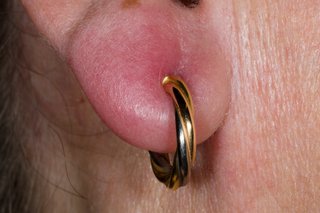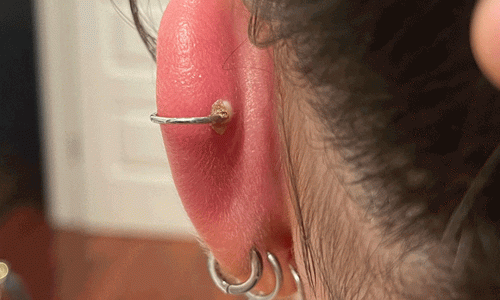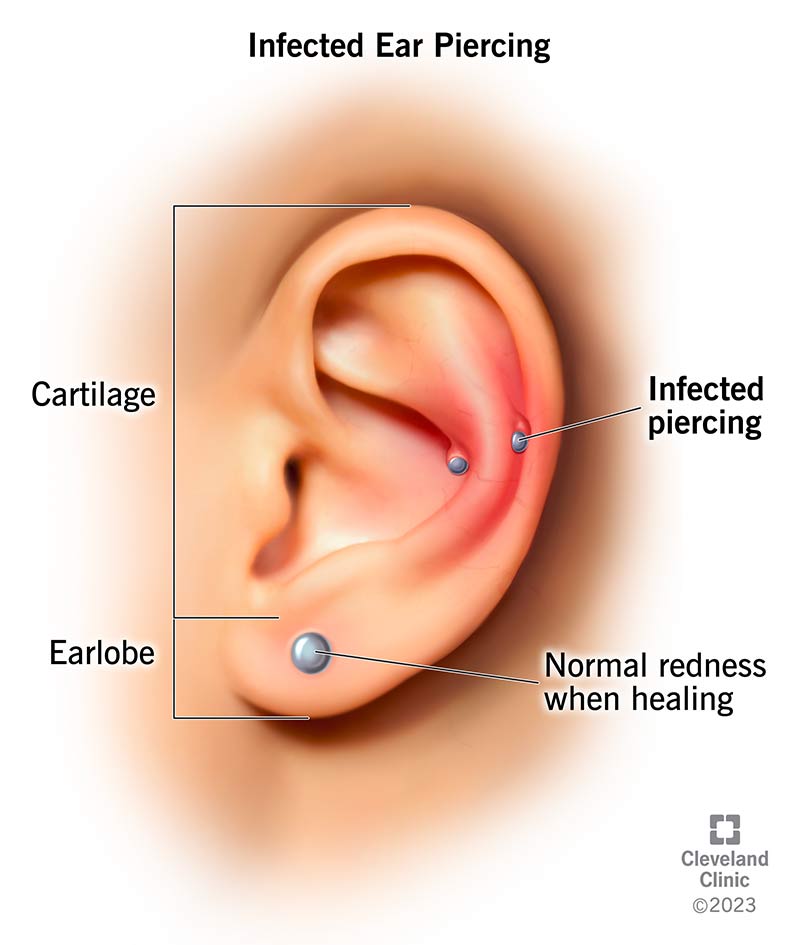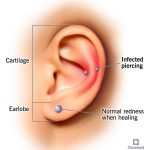Getting a piercing is exciting. It lets you express yourself. But sometimes, piercings can get infected. Knowing the signs of infection is important. This guide will help you understand if your piercing is infected.
What is an Infection?
An infection happens when germs enter the body. These germs can be bacteria or viruses. They can cause redness, swelling, and pain. Infections can happen in any part of the body, including piercings.
Signs Your Piercing May be Infected
There are several signs to look for. Here are the main ones:
- Redness: If the area around your piercing is red, it may be infected.
- Swelling: Swelling can mean there is a problem.
- Pain: If your piercing hurts more than normal, check it.
- Heat: If the area feels warm, it could be infected.
- Drainage: If you see yellow or green fluid, this is a sign.
- Fever: A fever may mean the infection is serious.
Why Do Infections Happen?
Infections can happen for many reasons. Here are some common causes:
- Not Cleaning: If you do not clean your piercing, germs can grow.
- Touching: Touching your piercing with dirty hands can cause germs to enter.
- Jewelry: Using the wrong type of jewelry can irritate your skin.
- Swimming: Swimming in dirty water can increase the risk of infection.
- Allergies: Some people are allergic to certain metals. This can cause problems.
How to Take Care of Your Piercing
Taking care of your piercing is very important. Here are some steps to follow:
- Clean Your Piercing: Use a saline solution or mild soap.
- Wash Your Hands: Always wash your hands before touching your piercing.
- Do Not Touch: Try not to touch your piercing unless you need to.
- Change Jewelry Carefully: If you need to change your jewelry, be gentle.
- Avoid Swimming: Stay out of pools and lakes for a few weeks.
- Follow Instructions: Listen to your piercer’s advice.

Credit: www.nhs.uk
When to See a Doctor
Sometimes, you need help from a doctor. Here are reasons to see a doctor:
- If your symptoms do not improve.
- If the area gets bigger or more painful.
- If you see pus or bad drainage.
- If you have a fever.
- If you feel very sick.
How Doctors Treat Infections
If you go to the doctor, they may do a few things:
- Examine: The doctor will look at your piercing.
- Clean: They may clean the area to remove pus.
- Prescribe: They may give you medicine to fight the infection.
- Advise: They will tell you how to care for your piercing.

Credit: www.essentialbeauty.com.au
Tips for Preventing Infections
Prevention is better than cure. Here are some tips to keep your piercing safe:
- Choose a Good Piercer: Find a professional with good reviews.
- Use Quality Jewelry: Choose jewelry made of safe materials.
- Keep It Clean: Clean your piercing regularly.
- Avoid Makeup: Do not use makeup near your piercing.
- Stay Healthy: Eat well and drink water for good health.
Frequently Asked Questions
How Can I Tell If My Piercing Is Infected?
Look for redness, swelling, or pus around the piercing. These signs often mean an infection.
What Are The Common Signs Of A Piercing Infection?
Common signs include pain, warmth, and unusual discharge from the piercing.
Should I Remove An Infected Piercing?
Removing an infected piercing can worsen the infection. Keep it in unless advised otherwise.
Can An Infected Piercing Heal On Its Own?
Some mild infections may heal naturally. Monitor the infection closely and seek help if needed.
Conclusion
Knowing how to care for your piercing is important. Look for signs of infection. If you notice any problems, see a doctor. Taking care of your piercing helps keep you safe and healthy. Enjoy your piercing, but stay alert!




